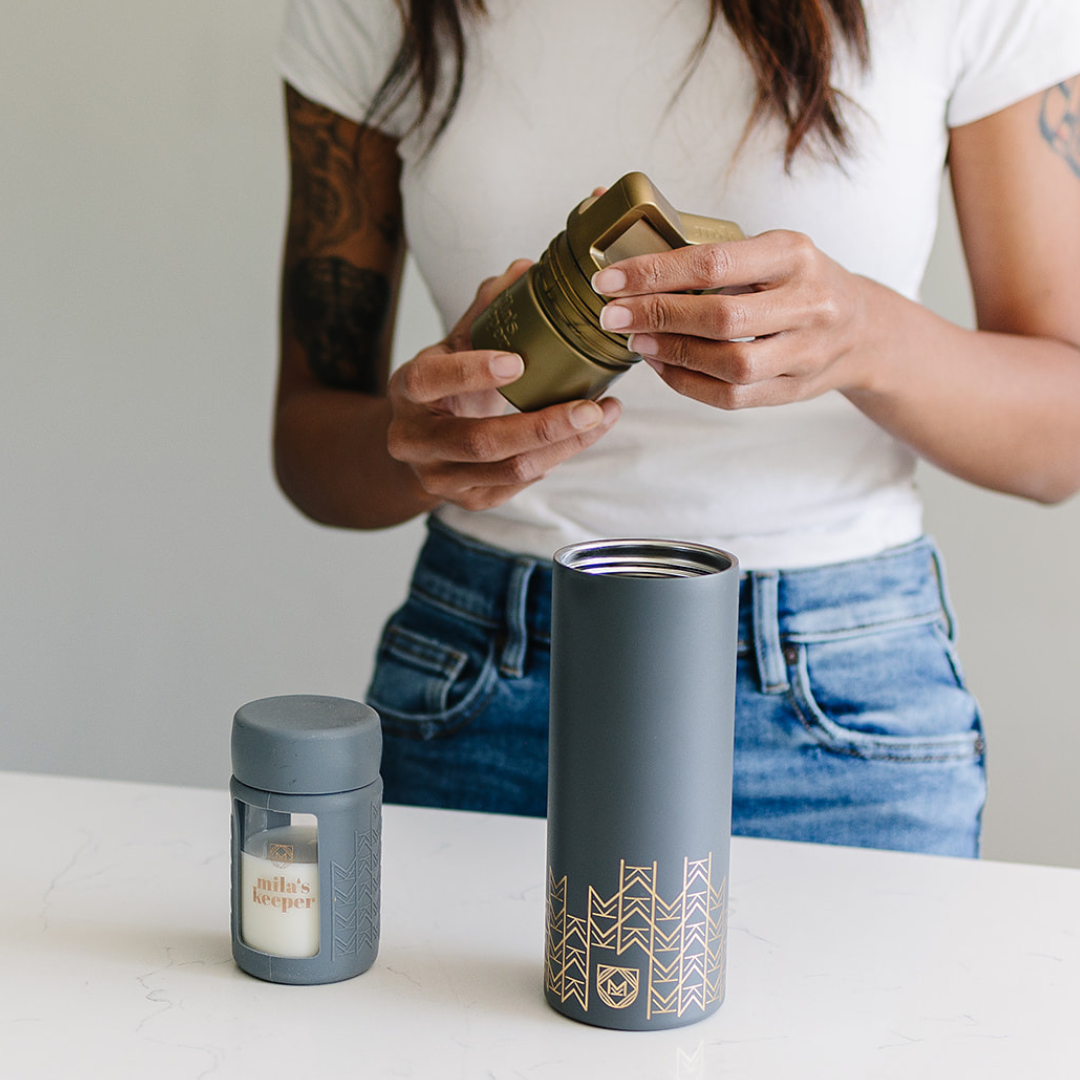The Emotional Journey of Breastfeeding and Pumping
Let’s be honest—breastfeeding and pumping are no small feats. While these feeding methods can be beautiful and empowering, they can also be downright exhausting, both physically and emotionally. Whether you’re breastfeeding exclusively, pumping on the go, or doing a bit of both, it’s important to recognize that the journey isn’t always what you imagined. It’s okay to feel overwhelmed at times—every mom does.
One aspect that often flies under the radar is the connection between breastfeeding and mental health. Yes, feeding your baby is important, but so is taking care of yourself. The demands of feeding, whether by breast or pump, can take a toll on your emotional well-being. Hormonal changes, societal pressures, and the constant juggling act can leave you feeling a bit frazzled.
In this article, we’ll take a deeper look into how pumping and mental health are intertwined and explore the emotional challenges of breastfeeding. We’ll also share some practical, real-life self-care strategies to help you manage stress, anxiety, and all the other emotions that come with being a breastfeeding or pumping mom.
Understanding the Mental Health Impact of Breastfeeding and Pumping
While everyone talks about the benefits of breastfeeding for your baby, there’s less conversation around the emotional rollercoaster that many moms go through. The truth is, breastfeeding (and pumping) can affect your mental health in ways you might not have expected. And let’s not forget, your body is still recovering from childbirth, and your hormones are on quite the ride themselves.
For starters, breastfeeding triggers the release of oxytocin—the "feel-good" hormone that helps with bonding and relaxation. Sounds great, right? Well, sometimes those hormonal shifts lead to unexpected lows, too. It’s not uncommon for moms to experience “baby blues,” where feelings of sadness, irritability, or mood swings pop up out of nowhere. If those feelings become more intense or linger, it could be a sign of postpartum mental health challenges like postpartum depression or anxiety, conditions that many moms face in silence.
Then there’s the emotional toll of pumping. If you’re an exclusive pumper or have to pump at work, it can feel isolating, especially if your employer isn’t very accommodating. Picture yourself sneaking away to pump in a quiet corner at work or rushing to keep up with your baby’s feeding schedule—those moments can bring on feelings of stress, guilt, or even inadequacy. Plus, there's the constant worry about milk supply. Moms often stress about whether they’re producing “enough,” even though every ounce is a labor of love. These are common emotional effects of pumping.
To top it off, societal pressures can make things harder. The messaging around breastfeeding being the "best" choice can leave moms feeling guilty if they face challenges or decide to switch to formula. It’s easy to feel like you’re not doing enough, even though you're doing more than enough just by being there for your baby. These mixed messages can contribute to the mental health impact of breastfeeding.

Coping with Breastfeeding Anxiety and Stress
It’s completely normal to feel some anxiety around breastfeeding or pumping. After all, there’s a lot of pressure on moms to "get it right" when it comes to feeding. But here’s the thing: your well-being matters too, and learning to manage the stress can make all the difference.
One of the most common sources of breastfeeding anxiety comes from worrying about milk supply—wondering whether your baby is getting enough or stressing over every pump session. The reality is that many moms have these concerns, but they rarely reflect the full picture. According to the U.S. Office on Women's Health, around 75% of new mothers worry about their milk supply, even though most of them are able to produce enough milk for their babies' needs. Trust your body, and remember that babies are pretty good at signaling when they’re hungry or full. If you’re ever in doubt, don’t hesitate to reach out to a lactation consultant—they can offer reassurance and guidance.
Another trigger of stress can be juggling feeding schedules, especially when it feels like you’re constantly attached to the pump or breast. This can lead to exhaustion, making the whole process feel overwhelming. To cope, try to set realistic expectations for yourself. It’s okay if you need to adjust your schedule or ask for help. Flexibility is key to managing the stress from pumping or breastfeeding.
If public breastfeeding is making you anxious, you’re not alone. Many moms feel self-conscious or stressed about nursing in public spaces. Finding a private, comfortable space can help, but remember that breastfeeding in public is your right. With time, confidence builds, and these moments become less stressful.
The biggest takeaway? You don’t have to do it all perfectly. The journey of breastfeeding and pumping comes with its ups and downs, and sometimes just taking it one feed at a time is the best strategy for managing stress while breastfeeding. Surround yourself with support, and don’t hesitate to take breaks when you need them.
The Role of Self-Care in a Pumping/Breastfeeding Lifestyle
When you're in the thick of breastfeeding or pumping, it’s easy to put your own needs on the back burner. However, taking time for yourself isn’t a luxury—it’s essential for maintaining both your physical and mental health. Self-care doesn’t have to be elaborate. In fact, the simplest actions can make a world of difference in how you feel day-to-day.
One of the most important areas of self-care is making sure you’re getting enough rest. Easier said than done, right? Sleep deprivation is a common struggle for new moms, and according to the National Sleep Foundation, nearly two-thirds of mothers with infants report significant sleep disruptions. Prioritizing short naps when possible and accepting help from your partner or family can go a long way toward feeling more refreshed.
Creating a comfortable, peaceful space for pumping or breastfeeding is another way to practice self-care. Whether it’s a cozy chair, soothing music, or a favorite snack, small rituals can help turn stressful feeding sessions into moments of calm. Moms who practice mindfulness techniques, like deep breathing or meditation, report lower stress levels during feeding times. Finding little ways to unwind while feeding your baby, like taking short walks or practicing gentle stretches, can also help you reset emotionally.
Don’t forget about nutrition and hydration, either. Breastfeeding moms burn around 500 extra calories per day, so it’s crucial to fuel your body with healthy foods and plenty of water. Keeping a reusable water bottle, like a breastmilk cooler that doubles as a water container, by your side can be a simple but effective reminder to stay hydrated throughout the day.
By incorporating these small acts of self-care, you’ll be better equipped to handle the emotional ups and downs that come with feeding your baby. Remember, taking care of yourself is the best way to take care of your little one.

Building a Support System to Protect Your Mental Health
Building a strong support system is one of the most important things you can do for your mental health as a breastfeeding mom. Whether it's emotional support from family and friends or practical advice from professionals, knowing you’re not alone in this journey can make all the difference.
Studies show that moms who have a strong support network experience lower levels of postpartum depression. In fact, a study published by the Journal of Maternal and Child Health found that moms with solid social support are 40% less likely to develop postpartum depression than those who feel isolated. Having someone to talk to—whether it’s a partner, friend, or fellow mom—can ease feelings of loneliness and help you work through the inevitable challenges of breastfeeding or pumping.
It’s also important to connect with people who truly understand what you’re going through. Joining a breastfeeding support group, either in person or online, can offer much-needed solidarity. These communities provide a safe space to share experiences, vent frustrations, and ask questions without judgment. For pumping moms, a pumping support group can be particularly helpful, especially when navigating the specific struggles that come with exclusive pumping or pumping at work.
Social media also plays a big role in providing emotional support, whether it be following influencers who share relatable content, to local facebook parent or breastfeeding groups which will help you connect to others physically in person, or to Reddit which can offer valuable advice from others or a place to just vent. There are hundreds of free online communities where mothers can get support or just simply feel less isolated.
Professional support is another key piece of the puzzle. Lactation consultants are invaluable for troubleshooting feeding issues, while mental health professionals can offer support if you’re feeling overwhelmed. We like the Lactation Network where they will connect you to insurance covered support both virtually and online. And if your insurance does not cover support, you can reach out to your nearest Women, Infant, and Children, a federally funded program that might be able to offer free education and counseling if eligible. Just simply google "WIC" and your nearest office should appear! Don’t hesitate to reach out if you find that the emotional toll is getting too heavy—it’s okay to ask for help. Recognizing when you need extra support is a sign of strength, not weakness.
By leaning on your support network, you can protect your mental health and make your breastfeeding or pumping journey more manageable and fulfilling.
Balancing Work, Pumping, and Mental Health
Returning to work while breastfeeding or pumping can add a new layer of stress to your already busy life. Between meeting deadlines, attending meetings, and finding time to pump, it can feel like a juggling act. The key is finding a balance that works for you—one that allows you to continue nourishing your baby without sacrificing your own well-being.
One challenge many moms face is managing their time efficiently. The American Academy of Pediatrics notes that, on average, mothers who pump at work need to take two to three pumping breaks per eight-hour workday, which can be difficult in some work environments. To make things easier, it's important to have a plan in place before returning to work, and consider having breastfeeding and pumping schedule ready. Talk to your employer about creating a pumping schedule that works for both of you, and make sure you have a private, comfortable space to pump. Don't hesitate to request changes too, if the space is not adequately comfortable or does not have all the tools you need. If you want to know what you should expect from a comfortable lactation space, we review 9 essential things here. Sometimes employers just need feedback from employees to understand their needs.
Advocating for your rights in the workplace is also essential for maintaining your mental health. In the U.S., the Break Time for Nursing Mothers Law requires employers to provide reasonable break time and a private, non-bathroom space for pumping for a year. There are lots of resources regarding the PUMP Act, the Providing Urgent Maternal Protections, which will help guide you in navigating your rights. Knowing your rights and having a conversation with your employer ahead of time can reduce anxiety and help create a supportive work environment.
Finding a balance between work and pumping at work is about more than just logistics—it’s also about self-compassion. It’s easy to feel pressure to perform at 100% both as an employee and as a mom, but remember, it’s okay to prioritize your mental health. Creating a healthy work-life balance while breastfeeding might mean adjusting your expectations or cutting yourself some slack when things don’t go perfectly.
Ultimately, balancing work, breastfeeding, and mental health comes down to flexibility, planning, and ensuring you have the support you need—whether from your employer, colleagues, or family.

Managing Guilt and Pressure Around Breastfeeding and Pumping
It’s no secret that many moms feel a lot of pressure when it comes to breastfeeding. Whether it’s pressure from societal expectations, family, or even from within, the emotional toll can be heavy. Many moms experience breastfeeding guilt if they struggle with nursing or decide to stop pumping earlier than planned. It’s important to remember that your worth as a mom is not tied to how you feed your baby—what matters most is that both of you are healthy and happy.
Research shows that this guilt is widespread. One study found that over 60% of moms feel guilt or disappointment if they don’t meet their breastfeeding goals. This emotional burden can be exacerbated by societal norms that portray breastfeeding as the only "right" choice, even though every mom’s situation is different.
Moms may also feel pressure to continue breastfeeding even when it’s no longer working for them or their baby. Whether it’s because of low milk supply, pain, or simply exhaustion, deciding to stop breastfeeding or pumping can lead to feelings of inadequacy. The key to managing this pressure to breastfeed is recognizing that every feeding journey is unique. You’re not alone in facing challenges, and it’s okay to make the decision that works best for you and your baby.
Another factor contributing to the emotional toll of pumping is the pressure to do it all—work, pump, and care for your baby—while still taking care of yourself. It’s easy to feel like you’re falling short, but the reality is that being a mom is about making the best decisions for your family, not adhering to unrealistic standards. Normalizing different feeding choices can help alleviate some of the guilt and pressure that moms often feel.
Ultimately, it’s important to focus on what’s best for both you and your baby. Whether you’re breastfeeding, pumping, or formula feeding, give yourself permission to let go of guilt and embrace the choices that bring you and your family the most peace.
Prioritizing Mental Health in Your Feeding Journey
As you navigate the ups and downs of breastfeeding and pumping, one thing is clear: your mental health is just as important as your baby’s nutrition. The connection between mental health and breastfeeding can’t be ignored, and taking time to prioritize your own emotional well-being is key to a more fulfilling feeding journey.
Whether you’re breastfeeding, pumping, or a combination of both, remember that it’s okay to ask for help when you need it. Build a strong support network, practice self-care, and be kind to yourself. Sometimes, the most important thing you can do for your baby is to ensure that you’re taking care of yourself, too.
In the end, whether your journey with breastfeeding lasts a few months or a few years, how you choose to feed your baby is a deeply personal decision. Focus on what feels right for you and your family, and let go of any pressure to conform to others’ expectations. After all, a happy and healthy mom is the foundation of a happy and healthy baby.
Keep Reading related blog: Six Tips on When to Choose to Start Your Maternity Leave.
--
A female-designed and female-run company, Mila's Keeper is on a mission to empower women to thrive during their breastfeeding journey by offering reusable, eco-friendly breast milk storage solutions for their day-to-day needs. Get the latest tips and info on Mila's Keeper products by following us on Facebook, Twitter, Instagram, Pinterest, and LinkedIn.























